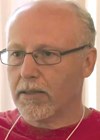Audiology features archive for September 2025
A return to digital delay and lip reading
Hearing aid + accessory + smartphone app = a ‘synching’ feeling? Marshall Chasin explains why patients might be losing the rhythm. The historical literature (at least going back to some of the classic texts in the 1960s) is full of...
The art of hearing: a conversation between silence and colour
The image on the ENT & Audiology News September/October 2025 cover is not merely an artwork – it is a conversation. A conversation in colour. A dialogue between silence and sound, between science and emotion. It is part of a...
Why, and how, audiologists should measure language ability: introducing AudiCloze
A cloze test uses missing ______ to assess language ability.How can audiologists measure ______ to help assess listening difficulties? Language ability and listening difficulties While it seems like stepping onto someone else’s turf, there is a strong need for audiologists...
Understanding the NAL-NL3 Prescription System: a new era of personalised hearing aid fitting
The NAL-NL3 system marks a transformative step in hearing aid fitting, shifting from a one-size-fits-most prescription to a modular, patient-centred approach. Developed by the National Acoustic Laboratories, this new system integrates a core audiogram-based prescription with targeted modules to address...
Vulnerability in audiological care: insights from Brené Brown and Kristin Neff
Embracing emotional openness and self-compassion can improve outcomes and relationships in the often-overlooked emotional landscape of audiological care. Audiological care is a deeply personal and often emotional journey for individuals experiencing hearing loss or other auditory challenges. Beyond the clinical...
Dementia assessments for people with deafness, deafblindness or visual impairment in Scotland
How is the medical community doing with assessing cognitive decline in those with a sensory impairment? The ALLIANCE Scottish Sensory Hub was tasked with finding out. Background There is growing evidence of a connection between dementia and sensory loss. However,...
Planes, trams, and auditoriums: Beware predatory conferencing
Predatory conferences are a growing concern. First highlighted in our sister magazine, Eye News*, the issue affects all areas of medicine – including ENT and audiology. With inboxes filling up with flattering invitations to ‘global’ meetings in glamorous destinations, it’s...












